A Closer Look at Collecting with Eric Ku
Eric Ku should be a familiar face to many of our readers, having been an active forum-contributor and collector for many years, and with a business, primarily focused on rare and obscure vintage Rolex models. His personal collection however, consists of some spectacularly rare independent and vintage pieces, including a Philippe Dufour Simplicity and a rather publicly-known LeCoultre Deep Sea Alarm, which quite literally made the news, having been found at a Goodwill for $5, with a true value of north of $35,000. We caught up with Eric in Geneva to chat about how he found himself dealing watches.
Let’s jump right in, when did you first become interested in watches?
I became interested in watches from a very young age actually. My dad wasn’t a collector at that time, and still isn’t now really, but he had a couple of Rolex watches and I remember looking at them a lot when I was young. You know what, I’ve been searching around at home recently, because I remember there was a picture taken of me at a Rolex counter in a jewellery shop.
No way!
I must have been like, three or four years old. I remember I was wearing a little raincoat and a yellow plastic hat. I’ve got to find it, because it’s quite funny that now I’m a watch dealer. My mum even remembers taking it.
Hopefully it’s somewhere…
Yeah, I’m sure it will show up in a box somewhere. So, I always loved watches, and I think the first thing that interested me was the mechanical aspect, the precision which was crafted by human hands.
Did you research much when you were young about these things?
Well, you know what it was like back then, it was all mail order catalogues from Rolex, Cartier and the rest. Every time I would get one delivered, I would pour through the details of these things, but I didn’t buy my first watch until I got my first big payday in college.

How did that come about?
Well, it’s a funny story. So, my parents had given me a year’s tuition for room and board in advance, which totalled around $50,000; it was the most money I’d ever had at any time in my life and I decided to put it all into the stock market [laughs].
[Laughs] wow…
I had been introduced to eBay quite early on because of watches, and they had just IPO'd, and I knew that this business was solid from my experiences with it, so I ploughed all my money in at around $20 a share. If you get bored, you can check the historical data on that [laughs].
[Laughs] So what happened?
It opened on the first day at $50 a share and then it just soared all the way up to around $600 a share. I had never seen anything like this, and at that time, you couldn’t play options on it, you can’t short it or anything like that. After the 30 day lock period, you can begin to play the options, so I felt it had grown so high, so quickly that it had to come down. This peak had me at around $300,000 - $400,000 on my initial $50,000, and I shorted it.
Oh god…
It went to $1,000 a share from there, even higher and I lost every last cent. Everything.
“But before I lost the money, Porsche had announced the 996 and I ordered a brand new one, with a custom specification”
No…
But before I lost the money, Porsche had announced the 996 and I ordered a brand new one, with a custom specification [laughs]. I paid the deposit and everything and never got the car.
[Laughs] That’s unbelievable. Did you tell your parents?
Yeah, but I held out as long as I could before telling them. I was completely broke, eating bagels every day because I really didn’t want to have to tell my parents that I had blasted the money [laughs].
Not ideal…
So my friends had this running joke about myself and a friend of mine, who had mirrored what I did, that the IMF bailout is coming. I finally had to call them and tell them, but surprisingly, my Dad was pretty philosophical about it all. A year’s tuition was a lot of money, but it could be been a lot worse I guess.
Wow, it seems like you really got away with it…
Yeah, he kind of laughed about it.
Did he have any appreciation for what you had done with the money?
I’m not sure about that, but there was a definite sense of them being glad that I’d learned that lesson now, rather than later in life, with more money or whatever.

Did you ever go out and get that Porsche that got away?
[Laughs] With hindsight, it was probably good that I didn’t get that 996, because that’s the one that Porsche collectors laugh at, you know…
[Laughs] right…
I had ordered it in gunmetal grey with an oxblood leather interior, with leather on the roof and on the handles. It was way too out of control. I’ve had Porsches since then, but thankfully not a 996 [laughs].
So, getting back onto watches, your interest was mainly from a mechanical fascination, or did that develop into something else?
At first it was a mechanical thing, but then as an adult it became more about the history of horology. I’d always loved the Rolex brand and it has a very rich history of firsts and great watches, so I became very taken with that.
Was there any aspect of it that was to safeguard what you were buying, making sure you didn’t get burnt?
Well, to some degree it’s always about that, but this was always primarily a personal interest of mine. There are a lot of dealers that pop-up all over the place who seem very focussed on the financial side of things, or making a quick buck where they can. These kinds of people may as well be selling cars or rugs or something, you know? because it’s just not from a passionate place; this is something I truly love.
It seems like the industry has made a big shift from obscurity to becoming something considered almost ‘cool’ to do these days…
Yeah, I mean, marketing this vintage lifestyle has become a big thing.
Absolutely…
And even if you look at new brands, they all have their own heritage lines. They’re all looking at the past.
How do you feel about that?
It’s a little overdone, in some places. I think it’s ultimately giving the people what they want, I mean, all these brands have iconic designs that they can pull-out of the archive and redo, or update.
How do you feel about the shift, business-wise, from operating in obscurity to what seems like a lot of focussed public attention, even on relatively private deals?
I think that transparency is an important thing when you’re selling something which is very expensive. This is an industry where the consumer doesn’t really have the ability to easily check if they’re being had or conned. The auction market is quite robust and provides a lot of data-points.
 Eric Ku wearing his FP Journe Chronographe Monopoussoir Rattrapante
Eric Ku wearing his FP Journe Chronographe Monopoussoir Rattrapante
Are you interested in time from a philosophical standpoint?
For sure, it’s the only thing, no matter how much money you have, you can’t buy more of. Time is a finite and equal thing for everybody, so from that point of view, I think it’s a very interesting thing.
Was that ever part of your fascination initially?
I think when you’re a kid, you don’t really understand the way the world moves. I remember thinking, at one stage, there’s 60 seconds in a minute, there’s 60 minutes in an hour, how many hours in a day and so on. It then developed to how many thousands of seconds there were in a day, that kind of thing. I was always thinking about something time-related when I was a kid [laughs].
"I think I was just a math nerd at the time [laughs].”
In a way of how you would spend your time or life?
I think I was just a math nerd at the time [laughs].
[Laughs] Got it…
There’s no metaphysical thing about it, I think I was just curious about the division of time, where that was concerned.
Were you particularly academic at school?
I was definitely more academic than anything else, I did nerdy things, like I was the captain of the math team...
Did you get involved with sports and things like that much?
I played baseball and there was this thing called 'indoor track' which I decided to do because it was the easiest sport to get a letter on those typical American sport jackets. There is a letter system, where you get a letter for playing a varsity sport, so it’s kind of a ‘cool’ thing. I’d just figured out the easiest route to getting one [laughs]

Was dealing in watches a specific ambition of yours?
Not really, it grew quite naturally. I first sold watches when the eBay stock collapsed, I had an Air-King that I had bought new and a red Submariner, which was my first vintage watch and I sold them both when I had no money. That would be my first real experience of that.
Do you think you have a kind of general collecting bug, so to speak?
Well, when I was a kid I would collect baseball cards and things like that. It was very common in the United States, but I think people are certainly born with a sort of collecting gene.
Was there any particular reasoning behind collecting for you?
I think it was just an appreciation for these things because, even now, I’ll buy a watch that I’ve been really interested in for a long time and when I finally get it, I’ll sit there and just stare at it for a long time, touching it or feeling it you know, that type of thing.
[Laughs] Right, and so how did things progress from those first sales?
Well, the Air-King was sold on eBay and the red Submariner I sold through one of the early forums at the time. I had started to engage with collectors online through that.
"I had become even more interested in watches and at this time SARS first hit Hong Kong and there was a Sotheby’s sale going on there and I figured, nobody would be bidding."
And where did it go from there?
Much later, I had replenished my bank account, I had become even more interested in watches and at this time SARS first hit Hong Kong and there was a Sotheby’s sale going on there and I figured, nobody would be bidding. I didn’t have the kind of money to bid on things, that I do today, but there was this kind of price-arbitrage that I was doing on certain modern pieces, like two-tone Subs, GMT Masters; things that were going under the radar at the time.
Smart…
I bought maybe $30,000 worth of watches, really boring things, but then I would resell those quite quickly and did very well on them. So, throughout the rest of college, I would buy and sell to make a little bit of pocket-money.
Did you have career ambitions separate to watches?
Yeah, after I graduated college, I worked various sorts of internet jobs and then I became a partner in a computer recycling company from Australia. So, we had a weird situation where I ended up owning part of the company, because you know, small businesses are always cash-strapped, right?
Right, right…
So, at one point they needed $50,000 and I loaned the company the cash to float through their troubles, but they couldn’t repay it, so it turned into equity. It ended up that there was a bizarre situation where there was a boss above me, and a CEO, but none of them had equity in the business, so they couldn’t really tell me what to do [laughs].
[Laughs] Ideal…
One day, I remember getting around ten FedEx boxes delivered to me at the office, and they were all watches. The HR lady there didn’t take too kindly to this and ended-up sending a passive-aggressive memo to all staff about personal packages or whatever [laughs].
[Laughs] Immediately after you got those delivered?
Yeah, I mean, that’s a swipe directly at me right? So, I had one foot out the door anyway, and they couldn’t fire me anyway because of the equity, so I just quit in the end. That day, I went straight to a real estate agency to get a small office, I signed the lease and I never looked back.

Wow, so that was the beginning of all of this?
Yeah, this was when it became official in roughly 2005, I think.
How did you find it, were there any big challenges that you hadn’t anticipated?
Yeah, I mean the financial distress of 2007/08 was a big hurdle. When things rise very rapidly in value, collectors start buying for monetary reasons as opposed to the love of what they’re buying. That was a difficult situation, because you had a lot of people getting second mortgages on their houses, buying watches and things, which I really dislike, and then prices collapse and I get call, after call, from people looking to sell XY and Z. When they hear that their investment is now worth X amount lower than they paid, that’s tough. Daytonas had gotten quite expensive by that point too…
Right…
A 6263 or a 6265 would trade around $52,000 to $55,000 and someone offered me four full set Daytonas at like $46,000 each and I bought them all. Overnight, the market corrected itself and people just stopped buying and I had nearly all of my working capital in these four watches, so $200,000 or so. It got to the point where I had to let them go for $27,000 each; so, a 50% haircut from the high.
Wow, do you find that during a financial-downturn, the Rolex market in particular gets flooded with pieces?
Well, they’re commodities with a trading price. It’s not like people stop buying, but you just have to get quickly adjusted to the new reality of pricing. The great thing about Rolex is the collector’s market is very deep and wide. There’s always someone that will buy something, even during a downturn.
Does it help you to be more niche with what you’re buying?
As cliche as it is, really really good quality examples of things are always sellable, you know?
Right, right…
Finding myself in that situation during 2008 certainly adjusted the way I do business now though, and it’s had a positive effect in terms of how I view the business and industry as a whole.

Did it make you more cautious with how much you expose yourself?
Yeah, I mean look, a lot of collectors, especially some well-heeled ones, they’re coming-in and thinking of buying things as an alternative investment class, but the first thing I tell them is, “Look, you can lose your ass off on this stuff. They can be an investment but this is a secondary thing and should never be the primary reason for buying.”
How robust do you think the auction prices are in terms of real value?
Auction results certainly inform pricing, but I’ve always priced relatively conservatively to the market. Just because a John Player Special Daytona hits $900,000 or $1 million, I wouldn’t automatically believe that price. If I can make my profit on it, I’m happy to sell it at a bit of a reduced price, relative to the auction price. People tend to get carried-away with bidding at auctions.
Do you primarily prefer private sourcing, to auction bidding?
Yeah, I much prefer private. There are certain opportunities at auctions, like if a client would like for me to buy something for them right? You charge a small margin, or commission for a service. Occasionally things fall-through the cracks at auction too, and go very cheap, so it’s good to keep an eye on these things.
And how about the world record type lots…
I just can’t see how you can sell these for an even higher price than the very public auction price with a straight face. Unless you can justify your experience as a dealer or something, that there is value no one else saw, but it’s kind of tricky when it’s a Paul Newman at a million bucks.
Thank you to Eric for spending some time with us. You can follow him on instagram as @fumanku.
























































































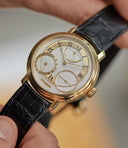
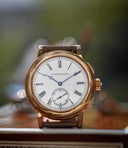
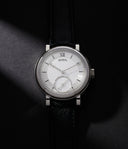
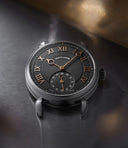


































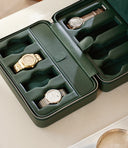
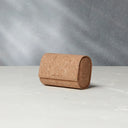
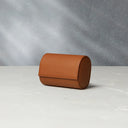
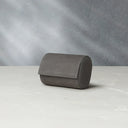
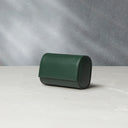
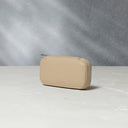
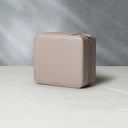
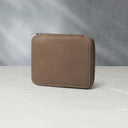
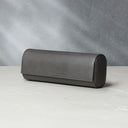
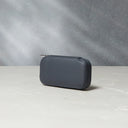
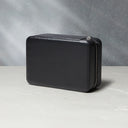
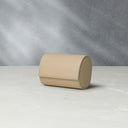
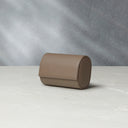
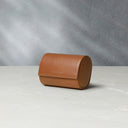
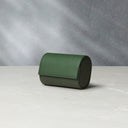
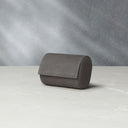
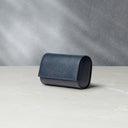
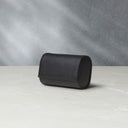
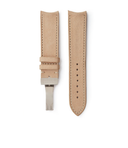
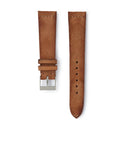
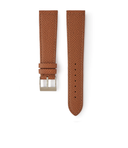
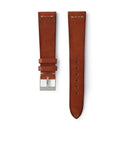
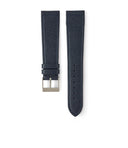
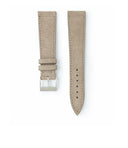
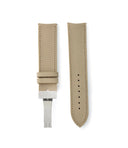
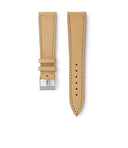
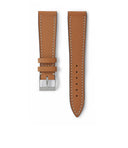
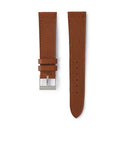
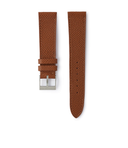
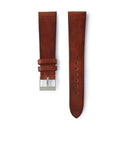
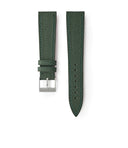
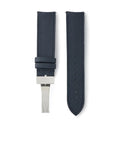
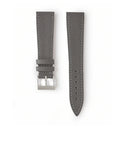
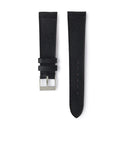
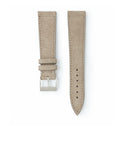
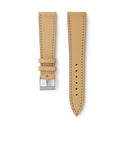
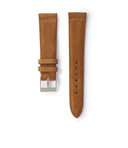
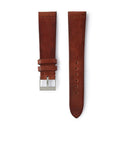
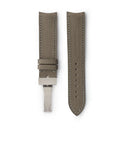
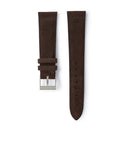
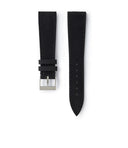
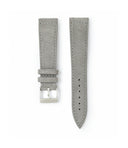
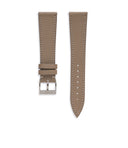
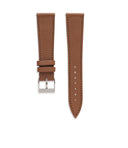
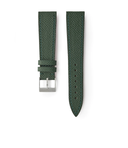
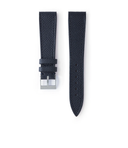
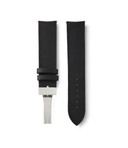
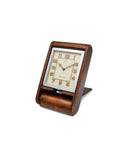
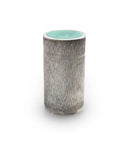
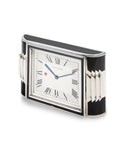
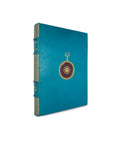
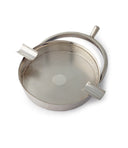

 Eric Ku wearing his FP Journe Chronographe Monopoussoir Rattrapante
Eric Ku wearing his FP Journe Chronographe Monopoussoir Rattrapante